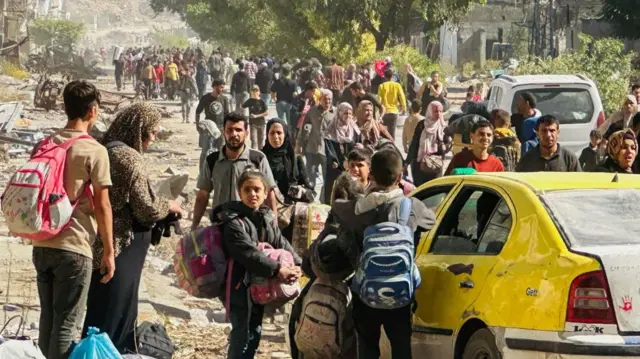In Gaza, a city where the siren screams on throughout the night, reminding everybody that the war is far from over, Nurse Fatima is one of the few who can recount the frenzy and torture experienced in her neighborhood after the latest Israeli onslaught. The story is a first-hand account of the heavy human cost violence inflicts on the injured, but not just on the wounded since the health workers themselves are unknown victims of that same violence.
The Field of Ruin
It’s the day after the airstrike. Fatima is arriving at Shifa Hospital, Gaza’s most significant health institution. The corridors are full of wounded and desperate people searching for their relatives. Where patients once went to be healed, a place has come to be a scenario of despair and dread. ‘Fatima describes the scenes awaiting her: makeshift beds along the corridors, frantic relatives searching for information, and crying all through the building.’
It is a task that not only requires treating the injured but also comforting those whose family members lost their lives. This is an emotional cost that is humongous. “Every time I step into the emergency room, I know I might face something I have never seen before,” she says, her voice struggling to be steady. “It’s hard to process grief and chaos when trying to save lives.”.
The Burden of Responsibility
Fatima’s work is not only medical: she is a source of support among her peers and patients. At every turn, she becomes the last link in the chain of care when everything seems too much to handle for everyone. Thus, she remains an eternal burden under which she toils to bring out results in every situation. With medical stores going down and acute staff shortages, things start appearing unmanageable.
“Every shift is a test of endurance,” she says. “We are always running on empty, both physically and emotionally. But we have to keep going; there is no other choice.” Fatima speaks of the camaraderie of staff at the hospital in rallying each other during such trying times. “We are like family, and that is what keeps us going. We share our fears and hopes, and that helps us cope.”
Grief and Resilience
The emotional scar of each attack lasts long after the acute destruction wears away. “We see the worst of humanity, but we also see incredible resilience. It’s the families, the children, and the survivors who inspire us to keep fighting,” says Fatima.
Three days after the strike, Fatima takes photos and writes her testimonies, recording survivors’ testimonies. She sends these stories out into the world and hopes they will shed just one tiny little light upon the war: the human factor. “People need to see what we are going through,” she presses. It’s not just statistics or headlines; it is real life.”
The Call for Peace
Amidst all the mayhem and destruction, a glimmer of hope keeps Fatima believing that an end would soon bring a beaming smile to the face of violence, which has troubled Gaza for far too long. “We want peace, not for ourselves but for our children and their children’s children. No one should have to feel this pain,” she declares. While working, Fatima is simultaneously a carer and a voice for those who have no voice reminding the world of the human cost of war.
Her story stands testament to the human spirit’s tenacity, the importance of healthcare professionals in times of dire need, and the hard conditions of life for Gaza’s residents: “grief, chaos, and a stubborn hope for peace.”















